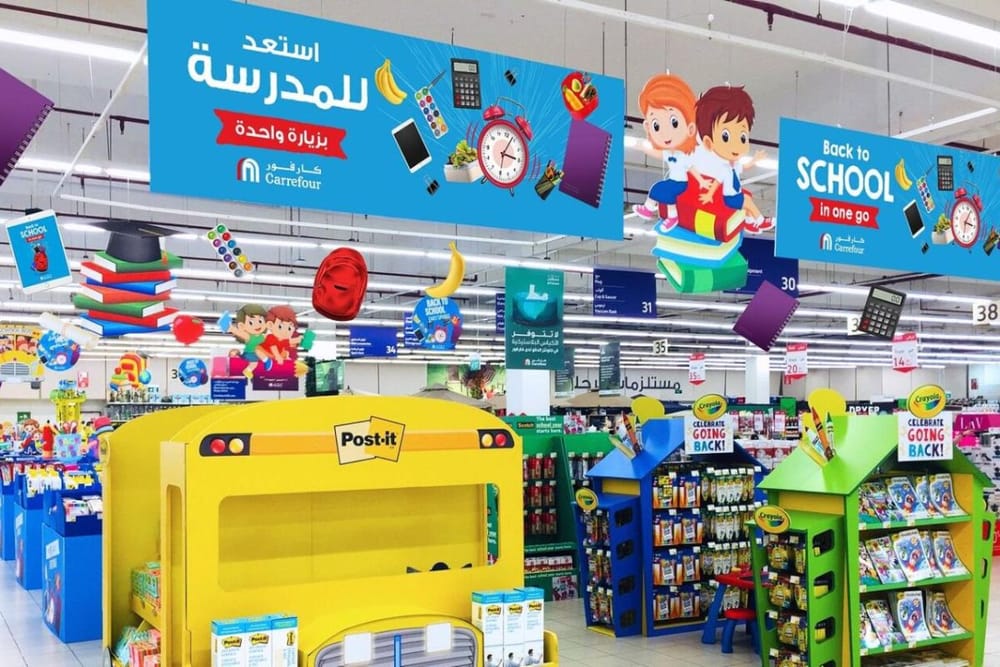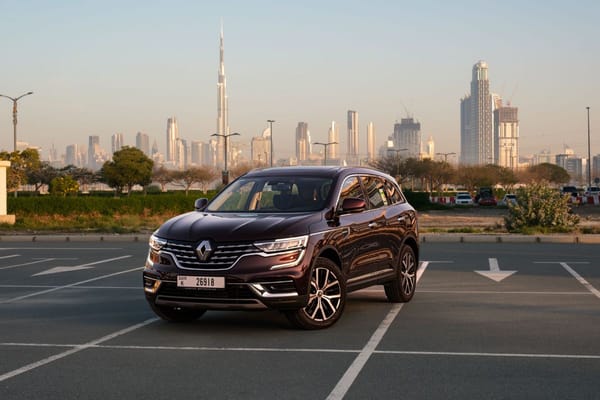A report by Majid Al Futtaim shows strong growth in the retail sector throughout the year.
In 2023, UAE consumer spending increased by 13 percent compared to 2022, with the retail sector experiencing a 14 percent surge, as per the 'State of the UAE Retail Economy' Report by Majid Al Futtaim. The first half of 2023 saw the most significant growth in spending compared to 2022, attributed to the previous year's FIFA World Cup, which boosted consumer spending due to increased tourism in the latter half of 2022.
"The UAE has earned a reputation for providing unmatched retail experiences, boasting a variety of top-tier shopping malls, upscale boutiques, hotels, restaurants, and attractions to a global audience. The country's dynamic retail scene has consistently shown significant growth, a trend that persisted in 2023. Factors like tourism and consumer confidence continued to drive increased spending,"
stated the report.
Consumer spending in the retail sector showed strong growth across the entire year, with spending evenly distributed between the first and second halves of 2023.
Throughout 2023, spending remained strong, with a notable increase in the final quarter, accounting for 27% of all retail economy spending for the year. This surge was attributed to COP28, which drew tens of thousands of visitors to the country, along with the traditional seasonal spending, as highlighted in the report.
Ahmed Galal Ismail, CEO at Majid Al Futtaim - Holding, emphasized the UAE's continuous success in achieving long-term prosperity through its social and economic ambitions. He noted the country's resilience to external pressures, progressive policymaking, and investor-friendly business environment, which solidified its position as a regional leader in the MENA region.
In 2023, spending in the hypermarket/supermarket sector increased by three per cent. The first half of the year saw a five per cent increase compared to the previous year, while spending in the second half remained consistent with the same period last year.
The sector's growth was primarily fueled by a 19% increase in e-commerce and digital sales, while spending in physical stores remained stable, reflecting levels seen in the previous year. Despite the digital surge, traditional brick-and-mortar stores remained dominant, constituting 85% of total sector spending, according to the report.
Consumers continued to favor smaller basket sizes, mirroring trends from the previous year, opting for more frequent shopping trips. They split their purchases between in-store and online platforms, seeking the best deals while limiting the number of items bought per trip, whether online or offline. Data revealed a 2% decrease in average spending per basket.
The sector's growth was mainly fueled by a 19 per cent increase in e-commerce and digital sales, while spending in physical stores remained stable, matching the previous year's levels. Despite the digital surge, traditional brick-and-mortar stores continued to dominate the market, comprising 85 per cent of total sector spending, according to the report.
Consumers maintained their preference for smaller basket sizes and more frequent shopping trips, aligning with the previous year's trend. They were observed splitting their purchases between in-store and online channels, seeking the best deals while limiting the number of items bought per trip, whether online or offline. Data revealed that average spending per basket decreased by 2 per cent in 2023, while the number of transactions increased by 4 per cent.

Data from Majid Al Futtaim’s Happiness Lab revealed a growing preference for discount shopping among consumers. According to their latest survey, 47 per cent of respondents favored purchasing discounted items, while 20 per cent opted for cheaper brands, continuing the trend from the previous year towards cost-conscious purchasing. The survey also indicated that 52 per cent of respondents consistently monitored price fluctuations, marking a 3 percentage point increase from 2022.
Across retail categories, consumer spending experienced a significant increase of 16 per cent compared to the previous year. The most notable year-on-year growth was observed in electronics (33 per cent), food and beverage (F&B) (25 per cent), and hotels (17 per cent). F&B contributed the most to the sector's growth at 41 per cent, followed by hotels (35 per cent) and electronics (nine per cent).

The increase in electronics spending was driven by significant adjustments in retail and wholesale prices.
"There was also evidence of price stabilization, with some prices falling below or matching 2022 levels, especially for high-demand smartphone launches from Samsung and Apple,"
noted the report.
E-commerce's contribution of 13 per cent to the sector's spending reflects the ongoing trend towards online purchases, supported by decreasing retail prices, increased digital literacy, and a rise in mobile orders.
The surge in spending during the first two quarters of 2023, which accounted for 82 per cent of the year-on-year increase, was boosted by events like the Dubai Shopping Festival and various sales promotions. Tourist spending in the sector also saw a substantial rise of 64 per cent compared to 2022, representing 23 per cent of total fashion spending, up from 19 per cent in 2022.
Looking ahead, the growth prospects for the sector in 2024 appear promising, with the region being viewed as a "haven of growth" for fashion.
"It is expected that the luxury market will continue to expand, driven by increasing tourist numbers and a thriving e-commerce landscape,"
the report concluded.
News Source: Khaleej Times








